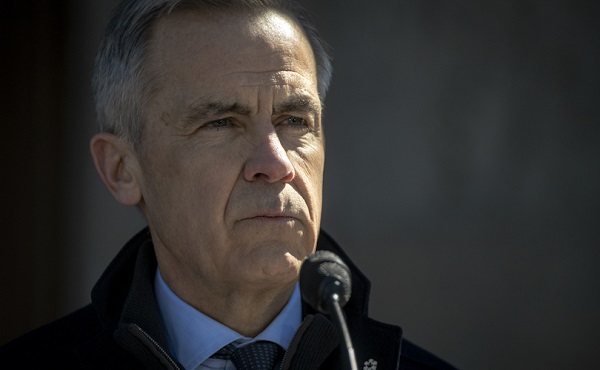Brownstone Institute
Government by the People: Is It Possible?

BY
The Gettysburg Address celebrated “government of the people, by the people, for the people,” echoing the ideals of the Enlightenment: equality for all, and liberation from the yoke of tyrannical rulers.
Since 1863 when Abraham Lincoln made his iconic speech, the “government of the people” bit has just purred along without a glitch. There has been no dearth of individuals wanting to rule others, whether by election or by birthright. The people have been thoroughly governed, and governed more still.
The “government for the people” bit has had its ups and downs. Every government claims it rules for the people – it would be political suicide not to make that claim in a developed Western society – but humans have a tendency to look after Number 1 before they help others. When placed in positions of authority, individuals have usually used those positions to amass more power and wealth for themselves.
As a slogan though, “government for the people” has been a roaring success. Even the swastika of the Nazis symbolised prosperity and happiness (being derived from the Sanskrit svastika, meaning ‘good to exist’). The reality in recent times, as in many historical ones, is that government has been for the people only in name.
It’s the “government by the people” bit that has been the most problematic.
But we have elections!
Elections of politicians may be heralded as the pinnacle of democracy, but elections embody neither the Athenian idea of democracy nor, in the modern media age especially, the idea of “government by the people.” On the contrary, elections are an elitist system through which “men and women of high standing” achieve power over others — for their own good, of course! Modern representative democracy is akin to an aristocratic marketing exercise, wherein clubs of important people specialise in how to get others to give them more power. Political dynasties and training trajectories have emerged to buttress and strengthen this exercise.
Politicians today go to great lengths to forge coalitions with the media and with wealthy individuals who can buy them airtime there. A class of elite professional persuaders has risen to the top of our “democratic” systems. The system does not reward the ability to lead or to put the needs of the people first, but the ability to persuade others. This is merely yet more “government of the people.”
Hence with a hand wave to the existence of “free and fair elections,” and apart from a few odd places like Switzerland, the “by the people” bit of Lincoln’s vision is being roundly ignored in modern democratic countries. The elites in charge like to think that populations cannot be trusted to make good decisions and are in need of their guidance. The political elites denigrate movements oriented towards giving a greater say in national affairs to the population by using the term “populism,” and their negative use of that term perfectly sums up what the elected class and their mates think about ordinary people.
The lack of government “by the people” has been a key problem in our societies for the past 30 years or more, particularly in the US where obscene amounts of money have blatantly entered the elite election game. There has been too much government of the people rather than by it, leading to widespread apathy among populations that then become more susceptible to abuse. Abuse is what happens when one does not stand up for one’s rights. Perennial vigilance and standing up for yourself when you are pushed around is the only way to deal with those who face a perennial temptation to push you around.
We have seen decay in spades over the past two to three years, but in Anglo-Saxon countries the downward slide in the living standards of the bottom 50% has been accelerating since about the 1980s. The year 2020 ushered in a fresh phase of decay in living standards. Only the very top of society is now prospering, while the rest suffers a diminution in every way: their health, wealth, education, prospects of owning a home, ability to travel, self-respect, myriad freedoms, and access to reliable information are all under unprecedented assault. A new medieval society has emerged with a few chiefs and a lot of abused Indians.
Power (back) to the People!
To escape this trap, populations need hope. To have hope, one needs a plan and a slogan. The slogan of the Gettysburg Address is still a good one. Let’s take it truly seriously.
What would “government by the people” look like, and what core changes should a reform movement champion to make Lincoln’s vision a reality? We propose a set of two complementary reforms, both of which aim to reintegrate the presently governed masses into the business of power. The first reform would assign to the masses the role of appointing public-service leaders, and the second would involve the masses in the presently dysfunctional production of information (i.e., the media sector). Let’s get into the first one now, and we’ll cover the second one in a forthcoming piece.
The most important duty that the public must reclaim is that of appointing its leaders. Elections of politicians are not enough when the modern state apparatus contains hundreds of top bureaucratic posts associated with significant authority to wield the power of the people via large-scale resource allocation decisions.
Neither is it only in the government bureaucracy that the “power of the people” – the power represented by the nation state – resides. State-funded universities, schools, hospitals, libraries, statistical agencies, and other institutions also benefit from the state “brand” and hence draw on the power whose ultimate source is the population making up that state. The leaders of such organisations, and of the various silos of the state bureaucracy, should in fairness be led by individuals chosen by that same population, not just “of” it.
Our proposal is that the appointments to all leadership roles in hospitals, universities, national media companies, government departments, scientific and statistical agencies, courts, police forces, and so on — in short, the leadership of what has come to be called the ‘administrative state’ or the ‘deep state’ — should be made directly by the people.
One might even argue that strategic roles in large public-service-oriented entities, even if technically part of the private sector, should be included too because they also have major effects on captive national populations. This would mean adding to the above list the top roles within entities like water suppliers, electricity generators, large charities, and big media companies, hospitals, and universities, regardless of sector.
How to make this happen? We propose adopting a method of mobilising and organising the population to judge others that worked reasonably well in Ancient Rome and Greece, worked again more recently in Italian city-states, and is ubiquitous today in courts of law: juries of citizens. The many benefits of giving citizens a strong and direct voice in the selection of leaders through citizen juries include fostering diversity of thought and breaking down the monocultures that have coiled their tendrils through and around our public institutions. At the same time, they can act as a bulwark against the power of the new private-sector barons whose wishes have come to dominate policy in many aspects of our economy and culture.
In a jury, unlike in an election, people pay attention and really talk to each other, particularly if they feel they truly are the ones deciding something important. They will be more likely to feel a weight of responsibility and to take their task seriously as members of a jury than when casting a vote together with millions of others once every couple of years.
We suggest juries of, say, 20 randomly chosen citizens apiece, of which each jury makes one appointment and is then disbanded. Expertise in specific disciplines is not required for jurors, just as jurors deciding the verdict in a money-laundering case do not need degrees in finance or accounting. Juries that do desire some expert guidance when making a decision can obtain this guidance easily.
As a practical matter, a sophisticated apparatus would be required to support the juries administratively. This would consist partly of a combination of jury alumni — citizens who have been part of juries before — and a purely administrative organisation that coordinates the jurors and the jury appointments. Jurors should not be told who to look for, what the selection criteria are, or any other such “guidance” that boils down to telling them what the existing power-holders want them to do. Via this system, trust is placed in the population, just as trust in the developed West is placed in markets rather than in central planning.
Involving the population directly in the appointment of thousands of leaders in the country every year is a step towards government by the people. Breaking the stranglehold of money and the professional persuaders over society in this way creates a new set of civic institutions that is independent of media-led elections and state and business elites, dragging the top of the public sector into the dominion of the citizens they are supposed to serve.
You can bet that this real transfer of power to the people will be strongly resisted by most elite individuals and institutions. They will loudly proclaim every single reason they can think of for why it is a crazy, impossible idea, and get “experts” from their networks to loudly profess the silliness of even proposing the notion. This vitriolic denigration is exactly the measure of how badly we need to loosen their grip on power and change the system they have entrenched for their own benefit.
Like Lincoln’s, our era calls out again for a “new birth of freedom,” not only for the United States but for all of the Western world, so that “government of the people, by the people, for the people, shall not perish from the earth.”
Brownstone Institute
Net Zero: The Mystery of the Falling Fertility

From the Brownstone Institute
By
If you want to argue that a mysterious factor X is responsible for the drop in fertility, you will have to explain (1) why the factor affected only the vaccinated, and (2) why it started affecting them at about the time of vaccination.
In January 2022, the number of children born in the Czech Republic suddenly decreased by about 10%. By the end of 2022, it had become clear that this was a signal: All the monthly numbers of newborns were mysteriously low.
In April 2023, I wrote a piece for a Czech investigative platform InFakta and suggested that this unexpected phenomenon might be connected to the aggressive vaccination campaign that had started approximately 9 months before the drop in natality. Denik N – a Czech equivalent of the New York Times – immediately came forward with a “devastating takedown” of my article, labeled me a liar and claimed that the pattern can be explained by demographics: There were fewer women in the population and they were getting older.
To compare fertility across countries (and time), the so-called Total Fertility Rate (TFR) is used. Roughly speaking, it is the average number of children that are born to a woman over her lifetime. TFR is independent of the number of women and of their age structure. Figure 1 below shows the evolution of TFR in several European countries between 2001 and 2023. I selected countries that experienced a similar drop in TFR in 2022 as the Czech Republic.

So, by the end of 2023, the following two points were clear:
- The drop in natality in the Czech Republic in 2022 could not be explained by demographic factors. Total fertility rate – which is independent of the number of women and their age structure – dropped sharply in 2022 and has been decreasing ever since. The data for 2024 show that the Czech TFR has decreased further to 1.37.
- Many other European countries experienced the same dramatic and unexpected decrease in fertility that started at the beginning of 2022. I have selected some of them for Figure 1 but there are more: The Netherlands, Norway, Slovakia, Slovenia, and Sweden. On the other hand, there are some countries that do not show a sudden drop in TFR, but rather a steady decline over a longer period (e.g. Belgium, France, UK, Greece, or Italy). Notable exceptions are Bulgaria, Spain, and Portugal where fertility has increased (albeit from very low numbers). The Human Fertility Project database has all the numbers.
This data pattern is so amazing and unexpected that even the mainstream media in Europe cannot avoid the problem completely. From time to time, talking heads with many academic titles appear and push one of the politically correct narratives: It’s Putin! (Spoiler alert: The war started in February 2022; however, children not born in 2022 were not conceived in 2021). It’s the inflation caused by Putin! (Sorry, that was even later). It’s the demographics! (Nope, see above, TFR is independent of the demographics).
Thus, the “v” word keeps creeping back into people’s minds and the Web’s Wild West is ripe with speculation. We decided not to speculate but to wrestle some more data from the Czech government. For many months, we were trying to acquire the number of newborns in each month, broken down by age and vaccination status of the mother. The post-socialist health-care system of our country is a double-edged sword: On one hand, the state collects much more data about citizens than an American would believe. On the other hand, we have an equivalent of the FOIA, and we are not afraid to use it. After many months of fruitless correspondence with the authorities, we turned to Jitka Chalankova – a Czech Ron Johnson in skirts – who finally managed to obtain an invaluable data sheet.
To my knowledge, the datasheet (now publicly available with an English translation here) is the only officially released dataset containing a breakdown of newborns by the Covid-19 vaccination status of the mother. We requested much more detailed data, but this is all we got. The data contains the number of births per month between January 2021 and December 2023 given by women (aged 18-39) who were vaccinated, i.e., had received at least one Covid vaccine dose by the date of delivery, and by women who were unvaccinated, i.e., had not received any dose of any Covid vaccine by the date of delivery.
Furthermore, the numbers of births per month by women vaccinated by one or more doses during pregnancy were provided. This enabled us to estimate the number of women who were vaccinated before conception. Then, we used open data on the Czech population structure by age, and open data on Covid vaccination by day, sex, and age.
Combining these three datasets, we were able to estimate the rates of successful conceptions (i.e., conceptions that led to births nine months later) by preconception vaccination status of the mother. Those interested in the technical details of the procedure may read Methods in the newly released paper. It is worth mentioning that the paper had been rejected without review in six high-ranking scientific journals. In Figure 2, we reprint the main finding of our analysis.

Figure 2 reveals several interesting patterns that I list here in order of importance:
- Vaccinated women conceived about a third fewer children than would be expected from their share of the population. Unvaccinated women conceived at about the same rate as all women before the pandemic. Thus, a strong association between Covid vaccination status and successful conceptions has been established.
- In the second half of 2021, there was a peak in the rate of conceptions of the unvaccinated (and a corresponding trough in the vaccinated). This points to rather intelligent behavior of Czech women, who – contrary to the official advice – probably avoided vaccination if they wanted to get pregnant. This concentrated the pregnancies in the unvaccinated group and produced the peak.
- In the first half of 2021, there was significant uncertainty in the estimates of the conception rates. The lower estimate of the conception rate in the vaccinated was produced by assuming that all women vaccinated (by at least one dose) during pregnancy were unvaccinated before conception. This was almost certainly true in the first half of 2021 because the vaccines were not available prior to 2021. The upper estimate was produced by assuming that all women vaccinated (by at least one dose) during pregnancy also received at least one dose before conception. This was probably closer to the truth in the second part of 2021. Thus, we think that the true conception rates for the vaccinated start close to the lower bound in early 2021 and end close to the upper bound in early 2022. Once again, we would like to be much more precise, but we have to work with what we have got.
Now that the association between Covid-19 vaccination and lower rates of conception has been established, the one important question looms: Is this association causal? In other words, did the Covid-19 vaccines really prevent women from getting pregnant?
The guardians of the official narrative brush off our findings and say that the difference is easily explained by confounding: The vaccinated tend to be older, more educated, city-dwelling, more climate change aware…you name it. That all may well be true, but in early 2022, the TFR of the whole population dropped sharply and has been decreasing ever since.
So, something must have happened in the spring of 2021. Had the population of women just spontaneously separated into two groups – rednecks who wanted kids and didn’t want the jab, and city slickers who didn’t want kids and wanted the jab – the fertility rate of the unvaccinated would indeed be much higher than that of the vaccinated. In that respect, such a selection bias could explain the observed pattern. However, had this been true, the total TFR of the whole population would have remained constant.
But this is not what happened. For some reason, the TFR of the whole population jumped down in January 2022 and has been decreasing ever since. And we have just shown that, for some reason, this decrease in fertility affected only the vaccinated. So, if you want to argue that a mysterious factor X is responsible for the drop in fertility, you will have to explain (1) why the factor affected only the vaccinated, and (2) why it started affecting them at about the time of vaccination. That is a tall order. Mr. Occam and I both think that X = the vaccine is the simplest explanation.
What really puzzles me is the continuation of the trend. If the vaccines really prevented conception, shouldn’t the effect have been transient? It’s been more than three years since the mass vaccination event, but fertility rates still keep falling. If this trend continues for another five years, we may as well stop arguing about pensions, defense spending, healthcare reform, and education – because we are done.
We are in the middle of what may be the biggest fertility crisis in the history of mankind. The reason for the collapse in fertility is not known. The governments of many European countries have the data that would unlock the mystery. Yet, it seems that no one wants to know.
Author
Brownstone Institute
FDA Exposed: Hundreds of Drugs Approved without Proof They Work

From the Brownstone Institute
By
The US Food and Drug Administration (FDA) has approved hundreds of drugs without proof that they work—and in some cases, despite evidence that they cause harm.
That’s the finding of a blistering two-year investigation by medical journalists Jeanne Lenzer and Shannon Brownlee, published by The Lever.
Reviewing more than 400 drug approvals between 2013 and 2022, the authors found the agency repeatedly ignored its own scientific standards.
One expert put it bluntly—the FDA’s threshold for evidence “can’t go any lower because it’s already in the dirt.”
A System Built on Weak Evidence
The findings were damning—73% of drugs approved by the FDA during the study period failed to meet all four basic criteria for demonstrating “substantial evidence” of effectiveness.
Those four criteria—presence of a control group, replication in two well-conducted trials, blinding of participants and investigators, and the use of clinical endpoints like symptom relief or extended survival—are supposed to be the bedrock of drug evaluation.
Yet only 28% of drugs met all four criteria—40 drugs met none.
These aren’t obscure technicalities—they are the most basic safeguards to protect patients from ineffective or dangerous treatments.
But under political and industry pressure, the FDA has increasingly abandoned them in favour of speed and so-called “regulatory flexibility.”
Since the early 1990s, the agency has relied heavily on expedited pathways that fast-track drugs to market.
In theory, this balances urgency with scientific rigour. In practice, it has flipped the process. Companies can now get drugs approved before proving that they work, with the promise of follow-up trials later.
But, as Lenzer and Brownlee revealed, “Nearly half of the required follow-up studies are never completed—and those that are often fail to show the drugs work, even while they remain on the market.”
“This represents a seismic shift in FDA regulation that has been quietly accomplished with virtually no awareness by doctors or the public,” they added.
More than half the approvals examined relied on preliminary data—not solid evidence that patients lived longer, felt better, or functioned more effectively.
And even when follow-up studies are conducted, many rely on the same flawed surrogate measures rather than hard clinical outcomes.
The result: a regulatory system where the FDA no longer acts as a gatekeeper—but as a passive observer.
Cancer Drugs: High Stakes, Low Standards
Nowhere is this failure more visible than in oncology.
Only 3 out of 123 cancer drugs approved between 2013 and 2022 met all four of the FDA’s basic scientific standards.
Most—81%—were approved based on surrogate endpoints like tumour shrinkage, without any evidence that they improved survival or quality of life.
Take Copiktra, for example—a drug approved in 2018 for blood cancers. The FDA gave it the green light based on improved “progression-free survival,” a measure of how long a tumour stays stable.
But a review of post-marketing data showed that patients taking Copiktra died 11 months earlier than those on a comparator drug.
It took six years after those studies showed the drug reduced patients’ survival for the FDA to warn the public that Copiktra should not be used as a first- or second-line treatment for certain types of leukaemia and lymphoma, citing “an increased risk of treatment-related mortality.”
Elmiron: Ineffective, Dangerous—And Still on the Market
Another striking case is Elmiron, approved in 1996 for interstitial cystitis—a painful bladder condition.
The FDA authorized it based on “close to zero data,” on the condition that the company conduct a follow-up study to determine whether it actually worked.
That study wasn’t completed for 18 years—and when it was, it showed Elmiron was no better than placebo.
In the meantime, hundreds of patients suffered vision loss or blindness. Others were hospitalized with colitis. Some died.
Yet Elmiron is still on the market today. Doctors continue to prescribe it.
“Hundreds of thousands of patients have been exposed to the drug, and the American Urological Association lists it as the only FDA-approved medication for interstitial cystitis,” Lenzer and Brownlee reported.
“Dangling Approvals” and Regulatory Paralysis
The FDA even has a term—”dangling approvals”—for drugs that remain on the market despite failed or missing follow-up trials.
One notorious case is Avastin, approved in 2008 for metastatic breast cancer.
It was fast-tracked, again, based on ‘progression-free survival.’ But after five clinical trials showed no improvement in overall survival—and raised serious safety concerns—the FDA moved to revoke its approval for metastatic breast cancer.
The backlash was intense.
Drug companies and patient advocacy groups launched a campaign to keep Avastin on the market. FDA staff received violent threats. Police were posted outside the agency’s building.
The fallout was so severe that for more than two decades afterwards, the FDA did not initiate another involuntary drug withdrawal in the face of industry opposition.
Billions Wasted, Thousands Harmed
Between 2018 and 2021, US taxpayers—through Medicare and Medicaid—paid $18 billion for drugs approved under the condition that follow-up studies would be conducted. Many never were.
The cost in lives is even higher.
A 2015 study found that 86% of cancer drugs approved between 2008 and 2012 based on surrogate outcomes showed no evidence that they helped patients live longer.
An estimated 128,000 Americans die each year from the effects of properly prescribed medications—excluding opioid overdoses. That’s more than all deaths from illegal drugs combined.
A 2024 analysis by Danish physician Peter Gøtzsche found that adverse effects from prescription medicines now rank among the top three causes of death globally.
Doctors Misled by the Drug Labels
Despite the scale of the problem, most patients—and most doctors—have no idea.
A 2016 survey published in JAMA asked practising physicians a simple question—what does FDA approval actually mean?
Only 6% got it right.
The rest assumed that it meant the drug had shown clear, clinically meaningful benefits—such as helping patients live longer or feel better—and that the data was statistically sound.
But the FDA requires none of that.
Drugs can be approved based on a single small study, a surrogate endpoint, or marginal statistical findings. Labels are often based on limited data, yet many doctors take them at face value.
Harvard researcher Aaron Kesselheim, who led the survey, said the results were “disappointing, but not entirely surprising,” noting that few doctors are taught about how the FDA’s regulatory process actually works.
Instead, physicians often rely on labels, marketing, or assumptions—believing that if the FDA has authorized a drug, it must be both safe and effective.
But as The Lever investigation shows, that is not a safe assumption.
And without that knowledge, even well-meaning physicians may prescribe drugs that do little good—and cause real harm.
Who Is the FDA Working for?
In interviews with more than 100 experts, patients, and former regulators, Lenzer and Brownlee found widespread concern that the FDA has lost its way.
Many pointed to the agency’s dependence on industry money. A BMJ investigation in 2022 found that user fees now fund two-thirds of the FDA’s drug review budget—raising serious questions about independence.

Yale physician and regulatory expert Reshma Ramachandran said the system is in urgent need of reform.
“We need an agency that’s independent from the industry it regulates and that uses high-quality science to assess the safety and efficacy of new drugs,” she told The Lever. “Without that, we might as well go back to the days of snake oil and patent medicines.”
For now, patients remain unwitting participants in a vast, unspoken experiment—taking drugs that may never have been properly tested, trusting a regulator that too often fails to protect them.
And as Lenzer and Brownlee conclude, that trust is increasingly misplaced.
- Investigative report by Jeanne Lenzer and Shannon Brownlee at The Lever [link]
- Searchable public drug approval database [link]
- See my talk: Failure of Drug Regulation: Declining standards and institutional corruption
Republished from the author’s Substack
-

 Alberta1 day ago
Alberta1 day agoAlberta Education negotiations update: Minister Horner
-

 Alberta2 days ago
Alberta2 days agoBreak the Fences, Keep the Frontier
-

 Opinion2 days ago
Opinion2 days agoRFK Jr. Reveals Unforgettable Details About Charlie Kirk in Emotional Tribute
-

 Business2 days ago
Business2 days agoCarney’s Ethics Test: Opposition MP’s To Challenge Prime Minister’s Financial Ties to China
-

 Business2 days ago
Business2 days agoCarney government’s housing GST rebate doesn’t go far enough
-

 Media2 days ago
Media2 days agoCancel culture wins ultimate victory as murder of Charlie Kirk ghoulishly celebrated by radical Left, media included
-

 Business1 day ago
Business1 day agoGlobal elites insisting on digital currency to phase out cash
-

 Business18 hours ago
Business18 hours agoRed tape is killing Canadian housing affordability






